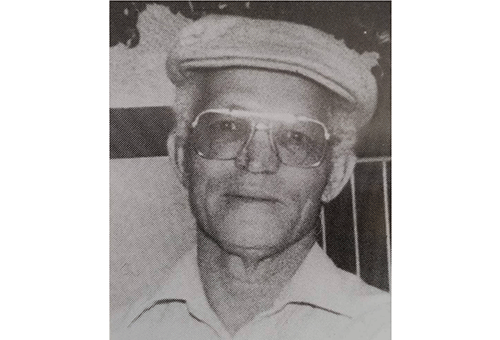A truly great multi-gifted athlete, Thomas ‘Tommy’ Jarman was certainly good enough to play for any top football team in the business and stood his own against the equally other solid shot-stoppers of his generation in the shape of Tigers agile net-guard Johannes Nandos ‘The Cat’ Mbako, Eddy Cloete, Johnny de Klerk, Stepha Seibeb and many others.
Uncle Tommy started his playing career with local outfit Hotspurs Football Club in his native town of Rehoboth, where he played as an outfield player – fullback, to be precise – alongside club captain and number-one goalkeeper Paul Johr. He was a solid, versatile defender, who later made a successful transition to business as a much-sought-after noted funeral parlour.
Spurs competed fiercely against strong teams from Khomasdal in Windhoek, and they were among the most feared teams in the business. Back in the day, Khomasdal boasted the crème de la crème of domestic football, with clubs from that neck of the woods dominating proceedings in the popular knockout cup tournaments across the country.
Such was his brilliance and near-faultless displays for the Rehoboth outfit that he was given the nod to man the sticks ahead of his more celebrated peers to keep a goal for the star-studded SWA Invitational Blacks Eleven.
The combined team was made up of Coloureds/Basters and Bantus (blacks) playing personnel, destined to represent SWA in the South African Inter-Provincial Tournament in 1966.
Admittedly, the star-studded squad never reached its destination. This was after the puke-inducing intervention of the SWA racist white administration, which ordered the team to split into two different teams, one comprising of Basters/Coloureds and the other made up of Bantus.
However, the agitated squad members, under the stewardship of militant defender-cum-political-activist Uncle Walter ‘Bobby’ Sissing, dug in their heels and point blankly refused to accept this forced segregation by the racist apartheid regime as part of the systematic divide and rule dirty tactics.
Back in the apartheid era, Khomasdal was proclaimed a township for ostensible ‘civilised’ none whites, while Katutura was classified as a location for native Bantus, a race that was considered extremely dangerous to the wellbeing of minority whites, unless they were mere garden boys or house girls (maids).
This was the area when what had been only local community activities expanded to become multi-urban centre competitions, with the unavoidable introduction of town- and city-based knockout cup tournaments.
Truly speaking, if one has to define Uncle Tommy, this author will define the departed agile shot-stopper in three simple words: fearless, courageous and confident. He knew what he was doing on the playing field and never let his teammates down.
The super-energetic midfielder-cum-acrobatic last line of defence always dished out near-faultless displays that earned him the admiration and utmost respect of his teammates, opponents and neutral fans. A true professional and a great man of substance, Uncle Tommy was a charismatic personality, who was equally talented off the field as well.
Uncle Tommy gathered enough courage to bravely encroach on what was previously considered uncharted territory for non-whites. The streetwise Rehoboth native defied the odds when he opened Jarman Funeral Services (Pty) Ltd. in his native town of Rehoboth in 1971.
The company has since spread its wings to the city of bright lights (Windhoek) and added other franchises in prominent towns and cities across the length and width of the country to its radar. Jarman Funeral Services (Pty) Ltd. ranks among the leading decent and easily affordable service providers for grieving families.



